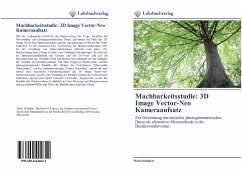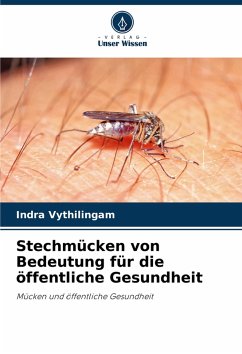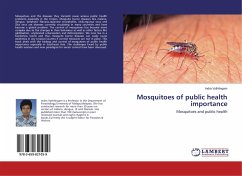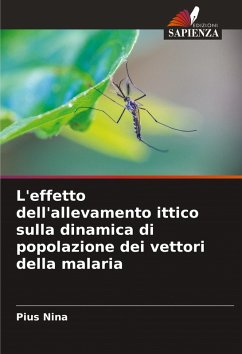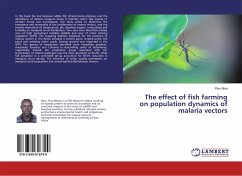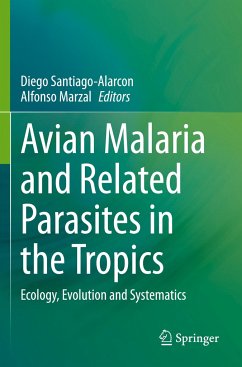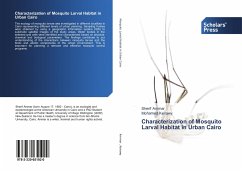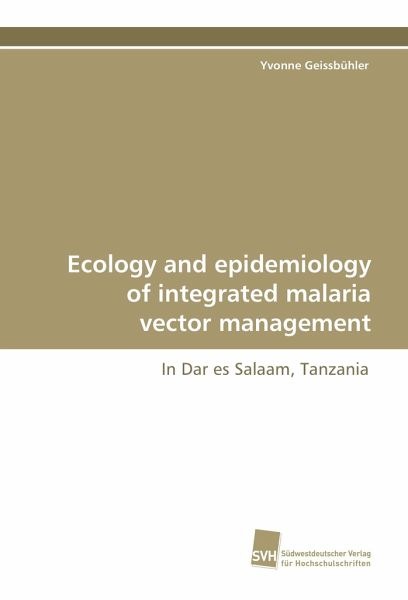
Ecology and epidemiology of integrated malaria vector management
In Dar es Salaam, Tanzania
Versandkostenfrei!
Versandfertig in 6-10 Tagen
115,90 €
inkl. MwSt.

PAYBACK Punkte
0 °P sammeln!
Malaria remains a major contributor to the global burden of disease especially in Sub-Saharan Africa. Even though more than 50% of the African population will live in towns and cities by 2030, little is known about urban malaria epidemiology and mosquito behavior. Therefore the goal of this research was to enhance current understanding of urban malaria epidemiology and ecology and at the same time to take an in-depth look at the effectiveness of larviciding with Bacillus thuringiensis (Bti) in the context of the Urban Malaria Control Program (UMCP) in Dar es Salaam, Tanzania. The study reveale...
Malaria remains a major contributor to the global burden of disease especially in Sub-Saharan Africa. Even though more than 50% of the African population will live in towns and cities by 2030, little is known about urban malaria epidemiology and mosquito behavior. Therefore the goal of this research was to enhance current understanding of urban malaria epidemiology and ecology and at the same time to take an in-depth look at the effectiveness of larviciding with Bacillus thuringiensis (Bti) in the context of the Urban Malaria Control Program (UMCP) in Dar es Salaam, Tanzania. The study revealed that Anopheles species in this city are exophagic and that An. arabiensis even had an early biting peak before 10pm. Therefore insecticide treated nets (ITNs) only conferred 59% protection against exposure to An. gambiae s.s. and 38% protection against exposure to An. arabiensis. Nevertheless ITNs reduced malaria prevalence by about one fifth but the highest prevalence reduction was achieved by application of Bti. The UMCP demonstrated for the first time since the Global Eradication Campaign era, a success story of a malaria control program integrating larviciding.




